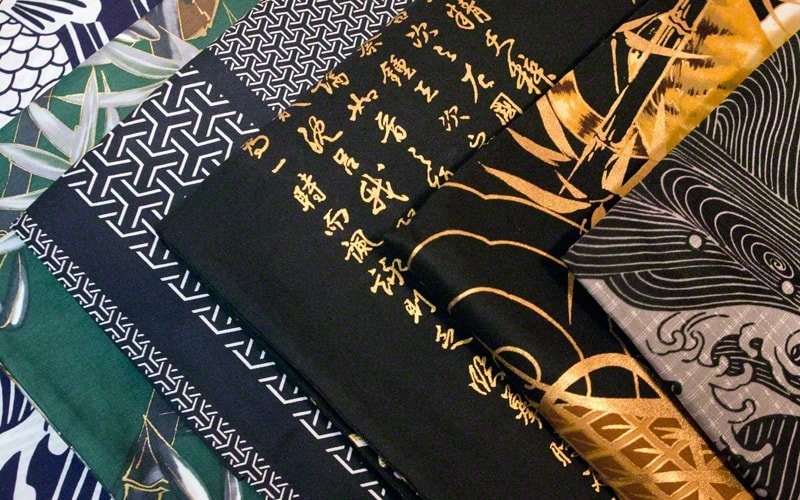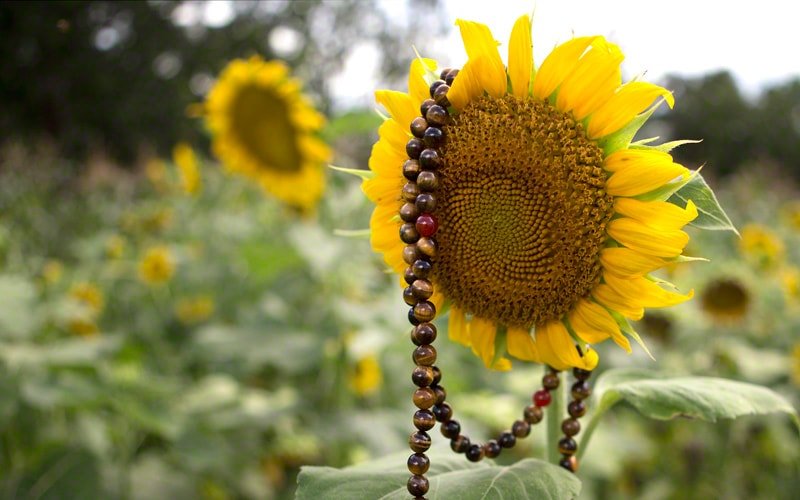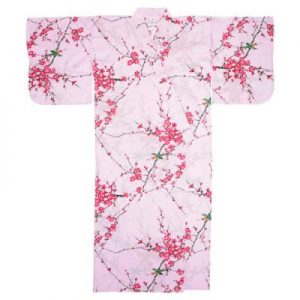Are you buying a Kimono produced by Slave Labor?
If you purchase a kimono or yukata from Chopa, you can be assured that no slave labor was used in producing these fine robes. We only offer robes produced in Japan without the use of forced or slave labor.
If you are buying a kimono elsewhere, chances favor that you are, if it was made in China. Forced slavery in China has been a hot topic for decades as the world looks closer at how some things are produced for such low costs. One of the reasons is low-cost labor. Ask any manufacturing manager or factory owner what one of their most important factors are in determining price, and labor is inevitably among the top answers.
China has a long foothold on producing low cost goods and labor is a predominate factor. Days are long, the standard workweek is six days and benefits for many are nonexistent. In some factories, employees also live there. Some consider it part of their pay; others call it forced imprisonment. Some factories have block walls around the perimeter with razor wire fences and watch towers that resemble prisons.
Jonathan Bass, CEO of PTM Images told Gordon Chang, Author of The Coming Collapse of China that “We all need to decide our moral responsibilities as Americans and what we stand for. We do not stand for slave labor. We in fact fought a war on our own soil to end it.” Mr. Bass’ insights are a startling reminder we shouldn’t take for granted and the message should never be forgotten.
We often see kimonos for sale on Amazon, Etsy and similar sites selling for $20.00 to $30.00. They are often deceptively advertised as Japanese kimono, but we immediately know from the price, that these are not made in Japan. Japan is not a communist country and their leadership does not condone slavery. In China, the communist government denies any knowledge or acceptance of slavery but there are far too many documented cases and facts that disprove their claim.
Forced labor doesn’t begin inside the walls of a factory, but rather in the fields of cotton. China is the largest cotton producer in the world, with 84% of its cotton coming from the Xinjiang region. Chinese officials force hundreds of thousands of Uighur Muslims into cotton harvesting.
Cotton and yarn produced in Xinjiang is also exported to other garment-producing countries like Cambodia, Bangladesh, and Vietnam. All three are also low-cost producing countries with subpar working conditions and little accountability for employee rights. According to Anti-Slavery International, one fifth of all cotton production in China is presumed to be linked to forced labor. Persecuted Muslim Uighurs in China are forced to supply the world’s fashion companies in the fields and in the factories.
In contrast, The United States has been a major supplier of raw cotton to Japan for more than a century assuring that the cotton kimono you buy from Japan is made without forced labor.
In 2016, the Global Slavery watchdog group estimated that on any given day in China, there were over 3.8 million people living in conditions of modern slavery. Forced child labor cases were detected in a garment factory in Changshu, Jiangsu Province, where underage workers were forced to work overtime and beaten if they refused. They also had their passports and mobile phones confiscated if they attempted to run away. Huge numbers from within this minority group, who are from the Xinjiang Uyghur Autonomous Region (XUAR) in the north-west part of the country, have allegedly been locked up and hired out by Communist party officials to greedy factory bosses. A leaked Beijing document revealed the scale of its detention camps, with officials admitting that up to eight million people had gone through “training” at state “gulags”. Global Slavery said “This is the largest mass detention of an ethnic and religious identity since World War 2.”
A coalition of more than 180 human rights groups believe that “virtually the entire global apparel industry is tainted by forced Uighur and Turkic Muslim labor. You could inadvertently be putting on a product that was made off the backs of forced labor of Uighurs.”
In February 2016, President Obama signed the Trade Facilitation and Trade Enforcement Act of 2015. This Act removed the “consumptive demand” exemption which allowed importation of goods produced with forced labor if they were not made “in such quantities in the United States as to meet the consumptive demands of the United States”. This effectively gutted the forced-labor prohibition. Unfortunately, his administration did not enforce the law against many large corporations, like Nike. Chang proposed the question to CPB, Customs and Border Protection, “How can Nike shoes made in a factory surrounded by walls, barbed-wire and watch towers, and where the workers, many from a racial minority, are not allowed to leave, not be made with forced labor?
The audits of Chinese suppliers are nearly always suspect. It is said that buyers of goods, when asking for prices of China-made products, are quoted two prices; one for goods with inspections and the other for goods without. The spread between the two prices approximates the cost of bribes for inspectors.
While U.S. law states that products made with forced labor can be seized, those made in horrible conditions in China and elsewhere are routinely cleared through Customs and end up on the shelves of American retailers.
Department of Homeland Security Secretary Kenneth Cuccinelli, who oversees the border agency, called “Made in China” a “warning label.” The cheap cotton goods you may be buying for family and friends during this season of giving, if coming from China, may have been made by slave labor in some of the most egregious human rights violations existing today in the modern world.”
The next time you seek to purchase a kimono, check the source carefully. Don’t be fooled by descriptions simply because the dealer says Japanese style, Japanese Robe or Japanese Kimono. Look for where it was made. If they don’t tell you clearly and plainly, ask. One of the biggest frauds we see on Amazon is that of companies claiming they are made in China but for export to Japan using Japanese standards. If you don’t shop carefully, they may have a bridge to sell you as well.
It may not seem like an issue but if you are against forced labor and slavery, don’t purchase a China-made Kimono. There is a reason we offer true, proven, quality made kimono and yukata from Japan. We don’t want to participate in the slave trade and won’t. Nor should you.






